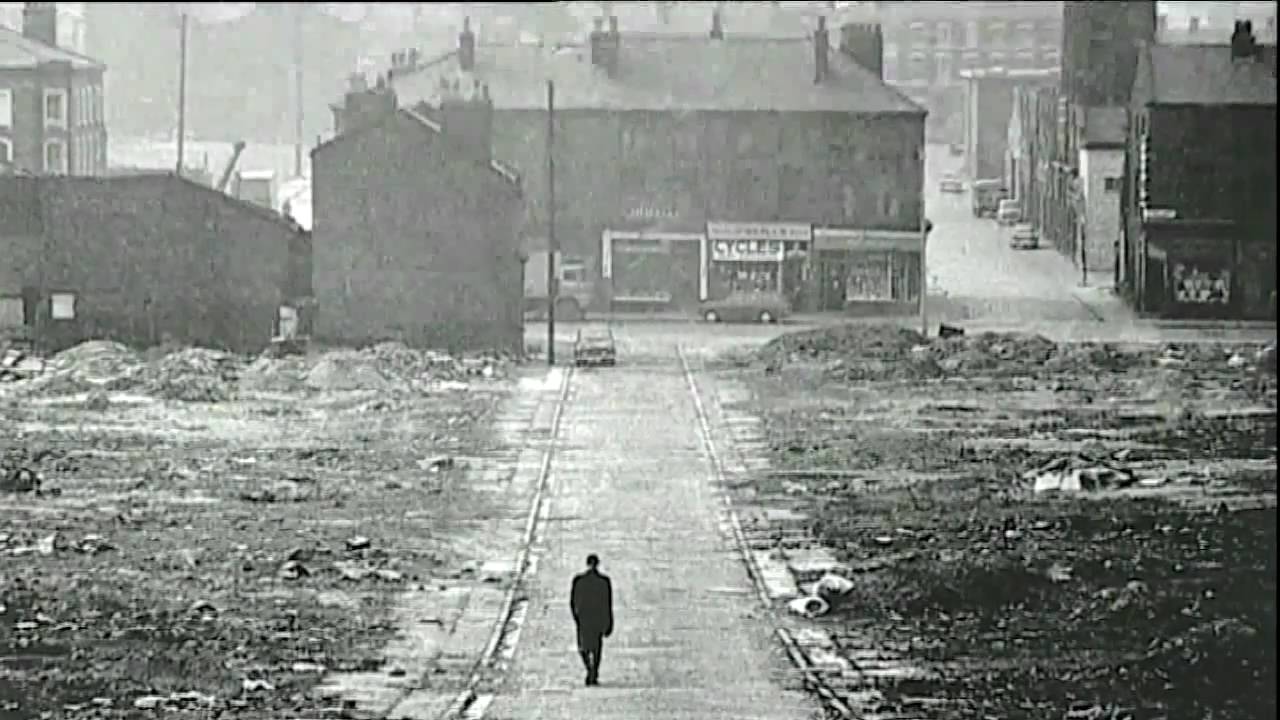By Chlotrudis Independent Film Society
Rating: 4.75 cats
Director: Terence Davies

Country: united_kingdom
Year: 2009
Running time: 72
IMDB: http://www.imdb.com/title/tt1232790/
Beth says: “This was Terence Davies’ commission for the Liverpool Cultural Group, and it’s a wonderful homage to his hometown city – in a sense it’s his MY WINNIPEG, the story of a city via the life of one of its premiere artists, with the artist as narrator. It is extraordinary, the extent of the archival footage that Davies had access to – the 20th century came late to the poor sections of Liverpool, and when it arrived, it came with a neighborhood-changing crash. Davies is unflinching, using music (mostly well) as wry counterpoint to the images viewed – Peggy Lee singing as the slums are cleared and highrise estates are built to replace them – and his words and voice to rail against the institutions that he feels failed him and his Liverpool, the Catholic Church and the monarchy. He holds nothing back, love and hate, nostalgia and days of remembrance past regret – every major city should have a film like this made, forget about these omnibus thingies that are all the rage now! 4 1/2 cats”
Bruce says: “Terence Davies refers to this filmmaking effort as a belles-lettres essay on Liverpool, the prototypical working class city. No stranger to the world of film, Liverpool has served as backdrop for many films such as BACKBEAT, HELP!, CHARIOTS OF FIRE, ACROSS THE UNIVERSE, PRIEST, LETTER TO BREZHNEV, HILARY AND JACKIE, the new ALFIE, AN AWFULLY BIG ADVENTURE, and Davies’ own DISTANT VOICES, STILL LIVES and THE LONG DAY CLOSES. Combining his own recently shot footage with archival footage and old newsreels, Davies offers a pictorial history of Liverpool from the time of his birth to the present. The mood is enhanced with Davies’ own voiceovers reciting his own poetry and the poetry of T. S. Eliot; the outstanding musical score is varied and lush as Davies uses Bacarisse, Mahler, Faure, Lizst, and Handel. Stylistically OF TIME AND THE CITY lies somewhere between the humor and breadth of observation in Guy Maddin’s MY WINNIPEG and the wistful eloquence of Chris Marker’s THE CASE OF THE GRINNING CAT. It is difficult to see this film without reflecting on one own’s past, the personal history each of us is dealt by being born in a specific time and place, like it or not.
“Davies’ view of Liverpool is personal. He gracefully expresses through his own experience how our individual human nature prompts each of us to create icons and associations based on the feelings and needs we develop as we navigate life’s vicissitudes. Born in Liverpool in 1945, he has seen many changes. The first great wave was the clearing of the working class slums in the 1950’s. What galvanizes the film is Peggy Lee singing ‘The Folks Who Live on the Hill’ while beautiful old brick and stone buildings crumble into dust replaced by sterile high rises with little or no personality. Today, however, times are changing. Not every edifice is razed these days. One Liverpool church is now a luxury restaurant.
“Davies is more than willing to digress; he doesn’t stick to Liverpool as the single topic of his essay. One minute he observes how the law is anything but tolerant of two gay men having sex in public, as the judge stated ‘not only did you commit an act of indiscretion but you did it under one of London’s most beautiful bridges.’ He talks about Liverpudlians being obsessed with the fossil monarchy of Betty Windsor Show, i.e., anything royal, as they live in the worse working class slums in Europe. Transportation is a key theme for Davies. Babies are everywhere as though the need to love unconditionally alone can justify one’s
existence. Perhaps raising children is the single joy commonly experienced across the past seven decades. As Davies states in the film, ‘the trouble with being poor is it takes up all your time.’ 5 cats
“OF TIME AND THE CITY screened at the 2008 Toronto International Film Festival.”
Diane says: “Terence Davies’ lush baritone floats over a collage of archival footage of his hometown, Liverpool, quoting Eliot, Engels, and Joyce. Here’s a typical quote, that I think is from Davies (no words are credited): ‘Municipal architecture–dispiriting at the best of times, but when combined with the British genius for creating the dismal–makes for a cityscape that is anything but Elysian.’ Our tour of the city is combined with isolated remarks about his youth. Bitterness and nostalgia, rejection and longing. I didn’t love the movie, but I respect what he was trying to do. Perhaps a good project for us all?”
